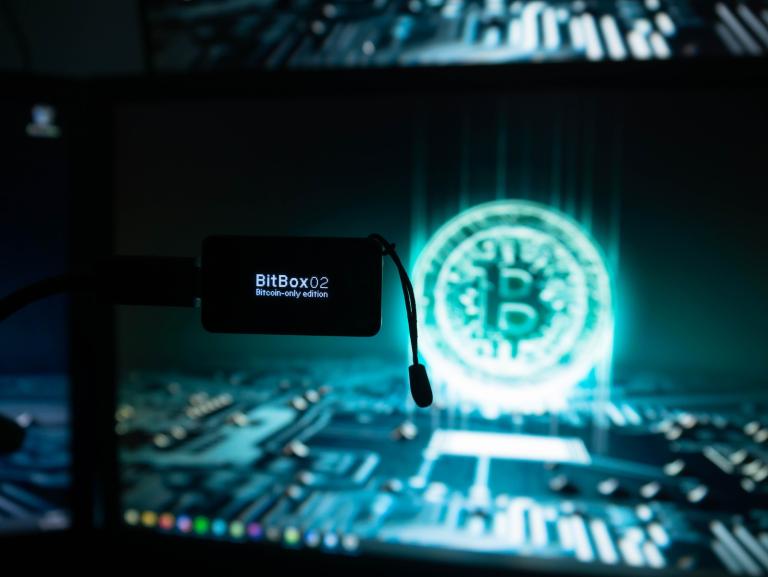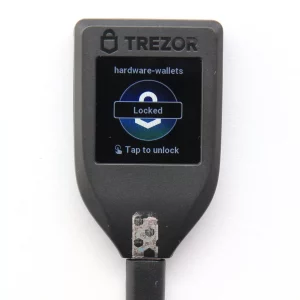A hardware wallet is a secure device, often resembling a USB stick, that stores your private keys – the digital signatures that prove ownership of your Bitcoin. Unlike software wallets on your phone or computer, hardware wallets remain offline, disconnected from the internet, making them significantly less vulnerable to hacking attempts. Traditional hardware wallets offer robust security, a subset – open source hardware wallets, introduces an additional layer of trust and transparency.
What is an Open Source Hardware Wallet?
Take the concept of a hardware wallet and add a layer of transparency. Open source hardware wallets are designed with their code and hardware specifications readily available for public scrutiny. This allows independent developers and security experts to examine the device’s inner workings, potentially identifying vulnerabilities before they can be exploited. This community-driven approach fosters trust and confidence in the wallet’s security.
Pros and Cons of Open Source Hardware Wallets
There are several compelling reasons why we highly recommend using an open-source hardware wallet if you are serious about safeguarding your Bitcoin. However, while open source wallets offer unparalleled transparency and community-driven security, their user-friendliness and feature sets might lag behind commercially backed options. Weighing these trade-offs is crucial before choosing the perfect open source hardware wallet.
Pros
Benefits offered by open source Bitcoin hardware wallets include the following:
- Enhanced Security: Open source code allows for thorough analysis and bug detection, leading to a more robust and secure product.
- Transparency and Trust: Knowing the inner workings of the device builds trust and confidence in its security.
- Community-driven Development: The active involvement of the community leads to faster bug fixes and feature improvements.
Cons:
Despite numerous advantages of open source wallets, such as the ones listed above, you should be aware of the following drawbacks:
- Potential for Vulnerabilities: While open source generally improves security, the public availability of code may attract attackers.
- Less User-friendly: Some open source wallets prioritize security over user experience, making them less intuitive for beginners.
- Limited Support: Smaller communities may offer less customer support compared to larger brands.
Best Open Source Hardware Wallet
Here’s our list of top open source hardware wallets.
- Trezor: Trezor hardware wallet stores your bitcoin keys offline in physical USB-like devices. In addition to features such as CoinJoin, SegWit, Taproot, and Tor, you can use the Dollar-cost averaging (DCA) strategy with scheduled buys direct to your Trezor wallet.
- Blockstream Jade: This is a newer airgapped wallet with advanced feature such as watch-only mode to only receive funds and see your balance, a “duress” wallet for situations where you are forced to reveal your PIN code, and Multisig Shield feature to increase the security of your funds.
- BitBox02: BitBox is a multisig wallet known for its privacy and security measures, which include a physical secure element chip that stores the user’s private keys, Tor support, end-to-end encryption of communication between the app and the device. You can buy bitcoin with SEPA directly in the BitBoxApp using Pocket Bitcoin, a no KYC exchange.
- Foundation Passport: A US-made Passport is an air-gapped, multisig, and open-source wallet. It has a smartphone design with intuitive interface, high-resolution display and built-in camera for easy QR scanning. The wallet is compatible with BlueWallet, BTCPay, Electrum, Wasabi, Sparrow and more.
- OneKey: This is a unique hardware wallet that supports the Lightning Network and Nostr.
- Satochip: The Satochip, a Belgian startup’s brainchild, has come up with a hardware wallet based on smart card technology. The wallet looks like a bank card, but it’s not. The open source wallet is designed to be more affordable and convenient than traditional hardware wallets.
- Bitkey: A new open source, multisig wallet that combines a mobile app, a hardware device, and a recovery system to keep your Bitcoin safe and accessible.
- KeepKey: An open-source hardware wallet with a large, high-resolution screen for secure, user-friendly Bitcoin management.
What’s the Best Open Source Hardware Wallet?
There’s no single “best” open source hardware wallet. The ideal choice depends on your individual needs, preferences, and priorities. You should consider factors like security level, user-friendliness, and budget before making your decision. Research and understand the features of each wallet before committing.
Based on our research and experience, if you are a Bitcoin only user, you are strongly advised to focus on Bitcoin only hardware wallet, such as Blockstream Jade, Foundation Passport, and BitBox Bitcoin-only edition because they are specifically optimized for Bitcoin security architecture. This might involve dedicated hardware features, specialized firmware, and streamlined signing processes, potentially reducing potential attack vectors. Furthermore, these wallets often have a more user-friendly interface, as they only need to support the complexities of Bitcoin transactions.
By choosing an open source hardware wallet, you not only invest in your Bitcoin security but also contribute to a more secure and transparent ecosystem for everyone.



























